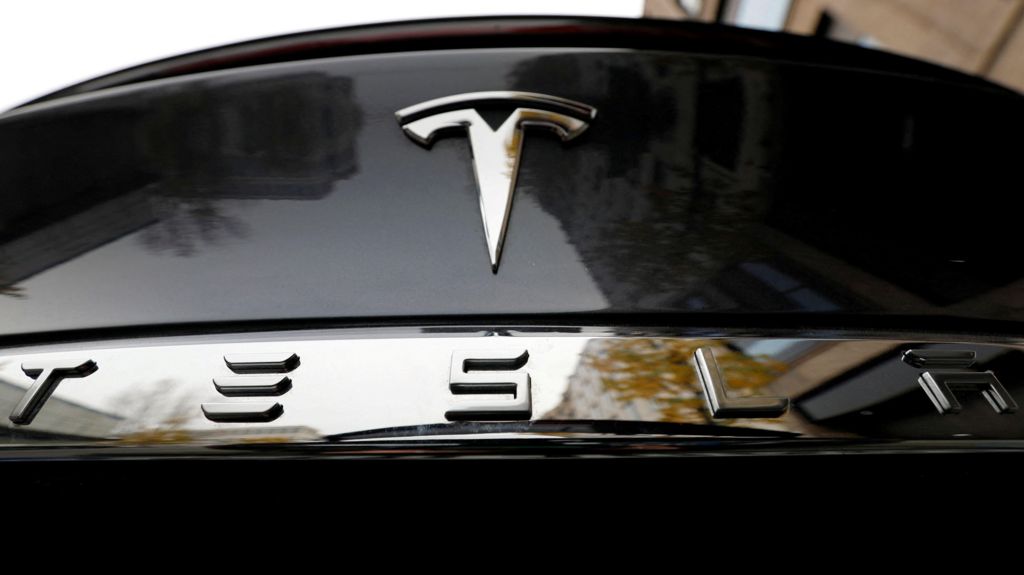
Wed, April 24, 2024 at 9:35 AM EDT
/cloudfront-us-east-1.images.arcpublishing.com/tgam/QRR3PUG7FJPKVK4ZUXH657P4IE.jpg)
/cloudfront-us-east-1.images.arcpublishing.com/tgam/QRR3PUG7FJPKVK4ZUXH657P4IE.jpg)
Be smart with your money. Get the latest investing insights delivered right to your inbox three times a week, with the Globe Investor newsletter. Sign up today.
Equities
Canada’s main stock index fell in early going Wednesday, hit by a sharp drop in crude prices and a higher-than-forecast reading on inflation. South of the border, key indexes were also weaker at the open with Fed chair Jerome Powell’s testimony before Congress in focus.
At 9:33 a.m. ET, the Toronto Stock Exchange’s S&P/TSX composite index was down 348.41 points, or 1.81 per cent, at 18,908.88.
The Dow Jones Industrial Average fell 177.68 points, or 0.58 per cent, at the open to 30,352.57.
The S&P 500 opened lower by 30.90 points, or 0.82 per cent, at 3,733.89, while the Nasdaq Composite dropped 127.35 points, or 1.15 per cent, to 10,941.95 at the opening bell.
On Wednesday, markets will have a close eye on an appearance by Mr. Powell on Capitol Hill, looking for indications of how aggressive the Fed will be in hiking rates as it looks to temper high inflation. In initial remarks, Mr. Powell said the Fed remains committed to bringing inflation under control.
“Jerome Powell’s semiannual testimony could turn the market mood sour again as the Fed chief is expected to reiterate his strong commitment to fighting inflation even if it means slower economy and a softer jobs market,” Swissquote senior analyst Ipek Ozkardeskaya said in an early note.
“Yesterday’s rally in stocks could be another dead cat bounce, and we may see the market painted in red in the following sessions,” she said.
In this country, inflation is front and centre with the release of the May consumer price index figures from Statistics Canada ahead of the start of trading.
The agency says the annual rate of inflation spiked to 7.7 per cent in May, the fastest pace since 1983. Economists had been expecting an increase, but most were looking for a number closer to 7.4 per cent. Statscan says higher gasoline prices were behind much of the increase although price pressures continued to be broad-based.
Economists are increasingly expecting the Bank of Canada to hike rates at its next policy meeting by 75 basis points following a similar move recently by the Fed.
“Inflation was already running well ahead of the Bank of Canada’s April projections prior to today’s release, and is now even further ahead,” CIBC senior economist Andrew Grantham said.
“The higher than expected inflation figure will have markets pricing an even greater probability of a 75-basis-point hike in July.”
On the corporate side, Canadian investors got results from Sobeys-parent Empire Co. Ltd. ahead of the start of trading. Empire Company Ltd. reported net earnings of $178.5-million or 68 cents per share in the quarter, compared to $171.9-million or 64 cents per share in the same period last year. The company announced a 10-per-cent increase to its quarterly dividend paid to shareholders, to 16.5 cents per share.
Overseas, the pan-European STOXX 600 fell 1.28 per cent just before midday. Britain’s FTSE 100 was down 1.11 per cent. Germany’s DAX and France’s CAC 40 were off 1.76 per cent and 1.58 per cent, respectively.
In Asia, Japan’s Nikkei finished down 0.37 per cent. Hong Kong’s Hang Seng dropped 2.56 per cent on weakness in tech stocks.
Commodities
Crude prices fell in early going with an expected move by U.S. President Joe Biden to ease costs for drivers tempering sentiment.
The day range on Brent is US$108.62 to US$114.45. The range on West Texas Intermediate is US$103.20 to US$109.76. Both benchmarks were down more than 4 per cent in the predawn period.
“There is a distinct lack of drivers behind this move, and certainly no headlines to justify it,” OANDA senior analyst Jeffrey Halley said.
“I surmise that President Biden’s expected announcement of a temporary suspension of Federal fuel taxes [on Wednesday] has prompted the selling, and I do note the U.S.-centric WTI contract is leading the charge lower.”
Later in the day, Mr. Biden is expected to call for a temporary suspension of the U.S. federal tax on gasoline, according to a report by Reuters. The move is aimed at addressing high costs for consumers and soaring inflationary pressures.
Later Wednesday, traders will also got the first of two weekly U.S. inventory reports, with new figures from the American Petroleum Institute. More official government figures will follow on Thursday morning.
In other commodities, gold prices slid alongside a firmer U.S. dollar.
Spot gold fell 0.3 per cent to US$1,826.41 per ounce by early Wednesday morning, extending losses to a fourth straight session. U.S. gold futures dropped 0.6 per cent to US$1,827.40.
“Although gold’s interminable range-trading continued overnight, the falls of the past three sessions hint that any upward momentum for the yellow metal is doing an Elvis and is leaving the building,” Mr. Halley said.
“Gold has been grinding lower, even as U.S. yields and the U.S. dollar trade sideways,” Mr. Halley said.
Currencies
The Canadian dollar was weaker, hit by uncertain risk sentiment and lower commodities prices, while its U.S. counterpart advanced against a basket of world currencies.
The day range on the loonie is 76.94 US cents to 77.43 US cents.
“The CAD has softened overnight, with price action driven by the weaker risk backdrop and a slump in energy prices,” Shaun Osborne, chief FX strategist with Scotiabank, said. “The CAD retains an unfortunately strong, negative correlation with US equities (-83 per cent by our measure) so the gravitational pull of sliding S&P 500 futures is hard to escape from.”
Canadian investors will get inflation figures ahead of the start of trading with economists expecting to see another spike in price pressures.
On world markets, the U.S. dollar index, which weighs the greenback against a group of currencies, was up 0.33 per cent at 104.8, according to figures from Reuters.
The euro fell 0.4 per cent to US$1.0497.
The yen slid 0.3 per cent to 136.3 per U.S. dollar, having hit 136.71 in early trade, its lowest since October 1998, Reuters reports.
Other commodities-linked currencies were also lower. The Norwegian krone fell 1.3 per cent against the U.S. dollar. The Australian dollar slid 1.1 per cent to US$0.6898 by early Wednesday.
In bonds, the yield on the U.S. 10-year note was lower at 3.222 per cent.
More company news
The Globe’s Susan Krashinsky Robertson reports that Canada’s largest retailer is getting into the increasingly competitive rapid grocery-delivery field through a partnership with San Francisco-based DoorDash Inc. Starting in August, Loblaw Cos. Ltd. will offer customers delivery in roughly 30 minutes or less, beginning in Toronto and Winnipeg before expanding to 10 locations across the country within that month. Within a few years, Loblaw expects to have 40 to 50 PC Express Rapid Delivery locations.
Brookfield Asset Management said on Wednesday it had raised $15-billion for its Brookfield Global Transition Fund, a fund focused on investments in the decarbonization technology space.
Boeing expects supply chain problems to persist almost until the end of 2023, led by labour shortages at mid-tier and smaller suppliers, partly due to the faster-than-expected return of demand, its chief executive said on Wednesday. Boeing said last month that production of its 737 aircraft had been slowed by shortages of a single type of wiring connector, while some of its airline customers had been forced to cancel flights due to a lack of staff in the post-pandemic recovery. “The shift from demand to now supply issues … is remarkable, the speed with which it happened,” Boeing Chief Executive David Calhoun said at Bloomberg’s Qatar Economic Forum in Doha.
Economic news
(8:30 a.m. ET) Canada’s CPI for May.
(9:30 a.m. ET) U.S. Fed Chair Jerome Powell testifies to the Senate Banking Committee.
With Reuters and The Canadian Press


Oil companies planning to ship crude on the expanded Trans Mountain pipeline in Canada are concerned that the project may not begin full service on May 1 but they would be nevertheless obligated to pay tolls from that date.
In a letter to the Canada Energy Regulator (CER), Suncor Energy and other shippers including BP and Marathon Petroleum have expressed doubts that Trans Mountain will start full service on May 1, as previously communicated, Reuters reports.
Trans Mountain Corporation, the government-owned entity that completed the pipeline construction, told Reuters in an email that line fill on the expanded pipeline would be completed in early May.
After a series of delays, cost overruns, and legal challenges, the expanded Trans Mountain oil pipeline will open for business on May 1, the company said early this month.
“The Commencement Date for commercial operation of the expanded system will be May 1, 2024. Trans Mountain anticipates providing service for all contracted volumes in the month of May,” Trans Mountain Corporation said in early April.
The expanded pipeline will triple the capacity of the original pipeline to 890,000 barrels per day (bpd) from 300,000 bpd to carry crude from Alberta’s oil sands to British Columbia on the Pacific Coast.
The Federal Government of Canada bought the Trans Mountain Pipeline Expansion (TMX) from Kinder Morgan back in 2018, together with related pipeline and terminal assets. That cost the federal government $3.3 billion (C$4.5 billion) at the time. Since then, the costs for the expansion of the pipeline have quadrupled to nearly $23 billion (C$30.9 billion).
The expansion project has faced continuous delays over the years. In one of the latest roadblocks in December, the Canadian regulator denied a variance request from the project developer to move a small section of the pipeline due to challenging drilling conditions.
The company asked the regulator to reconsider its decision, and received on January 12 a conditional approval, avoiding what could have been another two-year delay to start-up.
By Tsvetana Paraskova for Oilprice.com
More Top Reads From Oilprice.com:
Tsvetana is a writer for Oilprice.com with over a decade of experience writing for news outlets such as iNVEZZ and SeeNews.
|
|


Tesla has announced its profits fell sharply in the first three months of the year to $1.13bn (£910m), compared with $2.51bn in 2023.
It caps a difficult period for the electric vehicle (EV) maker, which – faced with falling sales – has announced thousands of job cuts.
Boss Elon Musk remains bullish about its prospects, telling investors the launch of new models would be brought forward.
Its share price has risen but analysts say it continues to face significant challenges, including from lower-cost rivals.
The company has suffered from falling demand and competition from cheaper Chinese imports which has led its stock price to collapse by 43% over 2024.
Figures for the first quarter of 2024 revealed revenues of $21.3bn, down on analysts’ predictions of just over $22bn.
But the decision by Tesla to bring forward the launch of new models from the second half of 2025 boosted its shares by nearly 12.5% in after-hours trading.
It did not reveal pricing details for the new vehicles.
However Mr Musk made clear he also grander ambitions, touting Tesla’s AI credentials and plans for self-driving vehicles – even going as far as to say considering it to be just a car company was the “wrong framework.”
“If somebody doesn’t believe Tesla is going to solve autonomy I think they should not be an investor,” he said.
Such sentiments have been questioned by analysts though, with Deutsche Bank saying driverless cars face “technological, regulatory and operational challenges.”
Some investors have called for the company to instead focus on releasing a lower price, mass-market EV.
However, Tesla has already been on a charm offensive, trying to win over new customers by dropping its prices in a series of markets in the face of falling sales.
It also said its situation was not unique.
“Global EV sales continue to be under pressure as many carmakers prioritize hybrids over EVs,” it said.
Despite plans to bring forward new models originally planned for next year the firm is cutting its workforce.
Tesla said it would lose 3,332 jobs in California and 2,688 positions in Texas, starting mid-June.
The cuts in Texas represent 12% of Tesla’s total workforce of almost 23,000 in the area where its gigafactory and headquarters are located.
However, Mr Musk sought to downplay the move.
“Tesla has now created over 30,000 manufacturing jobs in California!” he said in a post on his social media platform X, formerly Twitter, on Tuesday.
Another 285 jobs will be lost in New York.
Tesla’s total workforce stood at more than 140,000 late last year, up from around 100,000 at the end of 2021, according to the company’s filings with US regulators.
The car firm is also facing other issues, with a struggle over Mr Musk’s compensation still raging on.
On Wednesday, Tesla asked shareholders to vote for a proposal to accept Mr Musk’s compensation package – once valued at $56bn – which had been rejected by a Delaware judge.
The judge found Tesla’s directors had breached their fiduciary duty to the firm by awarding Mr Musk the pay-out.
Due to the fall in Tesla’s stock value, the compensation package is now estimated to be around $10bn less – but still greater than the GDP of many countries.
In addition, Tesla wants its shareholders to agree to the firm being moved from Delaware to Texas – which Mr Musk called for after the judge rejected his payday.





|
|
Tech stocks rose on Wednesday, outstripping the broader market as investors welcomed Tesla’s (TSLA) cheaper car pledge and waited for the next rush of corporate earnings.
The Nasdaq Composite (^IXIC) rose roughly 0.6%, coming off a sharp closing gain. The S&P 500 (^GSPC) was up 0.2%, continuing a rebound from its longest losing streak of 2024, while the Dow Jones Industrial Average (^DJI) fell 0.1%.
Tesla shares jumped nearly 12% after the EV maker’s vow to speed up the launch of more affordable models eclipsed its quarterly earnings and revenue miss. That cheered up investors worried about growth amid a strategy shift to robotaxis and the planned cancellation of a cheaper model.
The results from the first “Magnificent Seven” to report have intensified the already high hopes for Big Tech earnings, that the megacaps can revive the rally in stocks they powered. The spotlight is now on Meta’s (META) report due after the market close, as the Facebook owner’s shares rose after the Senate voted for a potential ban on rival TikTok. Microsoft (MSFT) and Alphabet (GOOG) next up on Thursday.
Meanwhile, Boeing (BA) reported better than expected first quarter results before the opening bell with a loss per share of $1.13, narrower than the $1.72 estimated by Wall Street. Shares rose about 2% in morning trade.
Live6 updates









Remnants of bird flu virus found in pasteurized milk, FDA says
Mayor's youth advisory council seeks submissions for art gala – SooToday




Bird flu virus found in grocery milk as officials say supply still safe
Jon Stewart Slams the Media for Coverage of Trump Trial – The New York Times




Taxes should not wag the tail of the investment dog, but that’s what Trudeau wants
Peel police chief met Sri Lankan officer a court says ‘participated’ in torture – Global News




iN PHOTOS: Nature lovers celebrate flora, fauna for Earth Day in Kamloops, Okanagan | iNFOnews | Thompson-Okanagan's News Source – iNFOnews
An exhibition with a cause: Montreal's 'Art by the Water' celebrates 15 years – CityNews Montreal